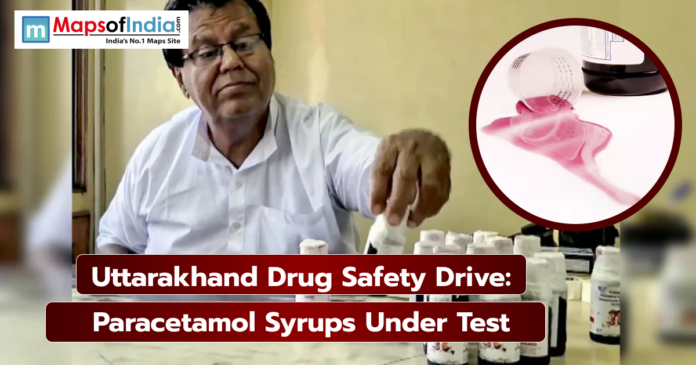The government of Uttarakhand has taken the first step of testing syrups containing paracetamol that are given to children in the state, and this is due to the increasing doubts about the safety of children’s drugs. In this preventive process, law enforcement officials have already taken nine samples of the popular syrup and forwarded them to approved labs where they can be tested in depth. The action follows increased alertness following the reports in other sections of India that brought to light incidents of contaminated syrups that have caused serious health problems to the children.
Health workers in Uttarakhand have stressed that paracetamol is among the medicines that are highly administered by children to alleviate fever and relieve pain. It is therefore important to ensure that such medicines are of good quality and also safe to avoid any incidence that may cause negative health effects. The inspection of the samples has been done by the state Food and Drug Administration (FDA) teams as well as drug inspectors who have been visiting pharmacies, medical stores, and wholesalers. It is concerned with the purity of the active ingredient, the presence of any harmful substance, and adherence to labelling and storage laws.
The laboratories will check the samples collected for impurities like industrial solvents or other toxic substances that may lead to damage to the kidneys, poisoning or other serious health disorders. Moreover, the tests will be made to determine whether the paracetamol concentration is right and whether the product meets all the quality standards. This project falls under a wider scope of ensuring high safety procedures of medicines used by children, due to other incidents that have occurred in other states, and have caused alarm in the country.
Medical stores and distributors have also been cautioned by the authorities to comply with safety measures and sell medicines with uncertainties. Based on laboratory reports, the government can go a step further to recall substandard batches, suspend the license of the vendors who are not complying, and advise the doctors and parents to avoid using some of the products. The government has also asserted that it is doing this as a precautionary measure to safeguard children and instill confidence in the population regarding medicines.
Scholars have hailed the proactive strategy and have pointed out that it is important to test the common medicines used on children on a regular basis to ensure child safety. They also underscored the need to have a high level of compliance with regulations by manufacturers and distributors to avoid contamination. It is recommended that parents should be on the alert and report any suspicious medicines to the health authorities when they are still using medicines from reputable sources.
As the test is still running, Uttarakhand will strive to make sure that kids in the state get quality and safe medicines. The findings of the nine samples are yet to be received, and the government has promised that proper steps will be taken on the findings. This action is an indication of the state’s concern for the safety and health of children and supports the necessity of quality control in the pharmaceutical industry.










